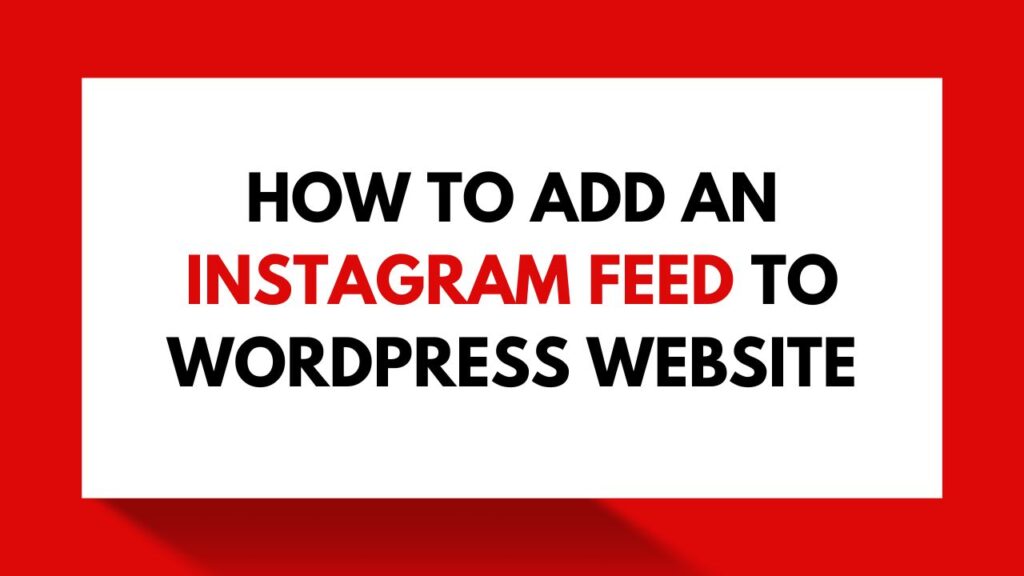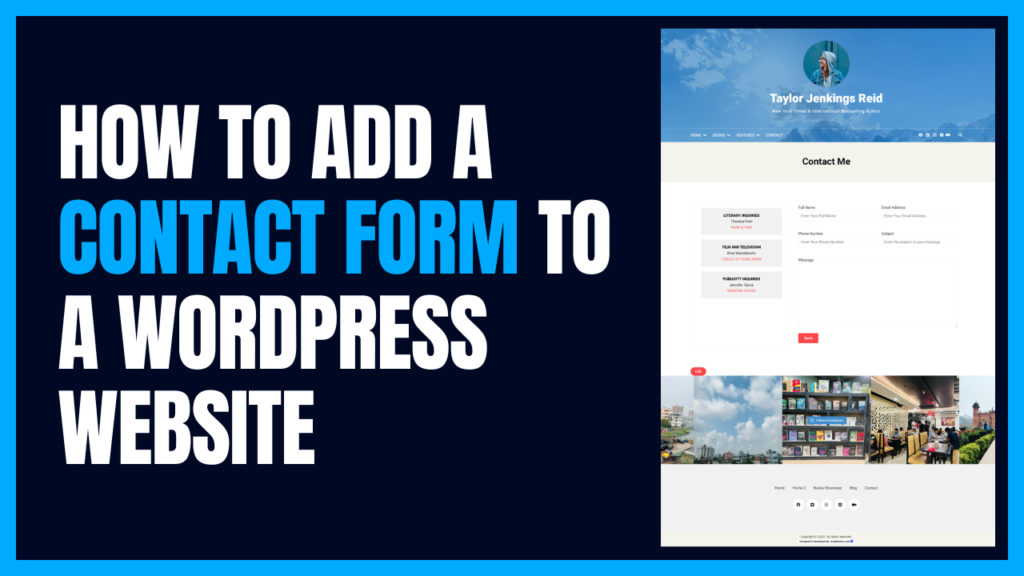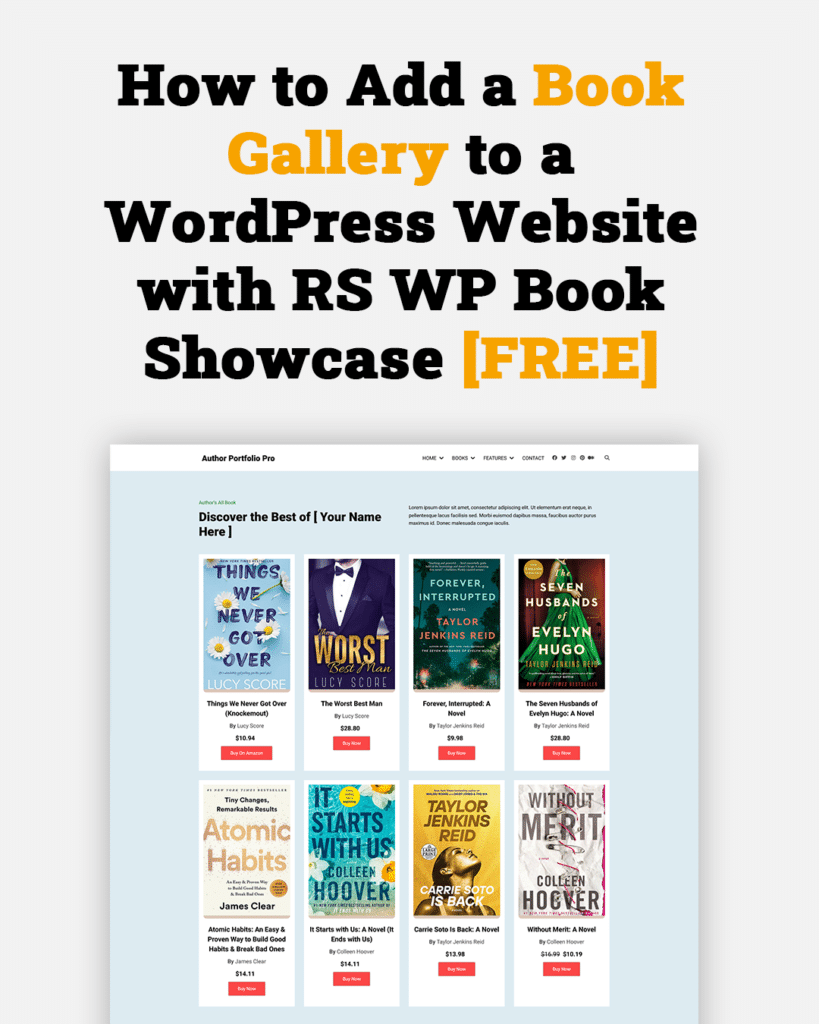Starting a book review blog can be an exciting venture, especially if you’re passionate about reading and sharing your thoughts with others. Whether you’re a seasoned reader or just looking to get into the world of book blogging, this guide will walk you through the steps of creating a successful book review blog from scratch.

Table of Contents
1. Find Your Niche
Before diving into book blogging, it’s essential to find a niche that reflects both your personal reading interests and fills a gap in the existing blogosphere. Your niche is the specific focus or theme of your blog, which will help you attract a loyal audience. It’s tempting to write about every book you read, but narrowing your focus allows you to stand out and build a more dedicated following.
How to Choose the Right Niche
Here are some key questions to help you figure out what niche suits you best:
- What genres do you love to read? If you love a particular genre like mystery, fantasy, historical fiction, or romance, building your blog around that genre can help you connect with like-minded readers. For example, a blog that reviews only cozy mysteries might become a go-to for fans of lighthearted whodunits.
- Who is your target audience? Are you writing for young adult (YA) readers, middle-grade readers, or adults? Understanding your target audience can shape the tone of your blog. For instance, a blog aimed at young adults might focus on contemporary YA novels, giving it a youthful, relatable vibe.
- Are you interested in a specific type of book? Beyond genre, there are other aspects to consider. Maybe you want to focus on debut authors, self-published books, or books written by women of color. A niche like this can position you as an expert in that area and make your blog a trusted resource.
Examples of Popular Book Review Blog Niches:
- Genre-Specific Blogs:
- Fantasy & Science Fiction Blog: If you love speculative fiction, focus on reviewing fantasy and sci-fi books. For example, “The Dragon’s Library” could be a blog that reviews new and classic fantasy novels, with in-depth analysis of world-building and magic systems.
- Romance Blog: Romance is one of the most popular genres in book blogging. You could specialize in historical romance, contemporary romance, or even LGBTQ+ romance. A blog like “Romance Reads & Roses” might cover romance reviews, interviews with romance authors, and bookish discussion posts.
- Audience-Focused Blogs:
- Young Adult (YA) Blog: YA is a massive genre with a large, active online community. Your blog could focus on new YA releases, fantasy trilogies, or coming-of-age stories. For example, a blog like “YA Lit Adventures” could review the latest books in this genre, interview authors, and share reading lists for teens.
- Children’s Books Blog: If you’re passionate about books for younger readers, you might review picture books, middle-grade novels, or educational children’s literature. A blog like “Little Library Adventures” could offer recommendations for parents and teachers, along with tips for encouraging kids to read.
- Unique or Lesser-Known Niches:
- Self-Published Books Blog: If you’re interested in indie publishing, reviewing self-published books can be a rewarding niche. You could help give exposure to new authors who are trying to break into the industry. A blog like “Indie Book Vault” could focus on hidden gems in the self-published world and offer insights on the indie book market.
- Books by Authors of Color: Another meaningful niche could be reviewing books by marginalized voices. A blog like “Voices Unheard” might feature reviews, interviews, and lists highlighting underrepresented authors across all genres.
- Classic Literature Blog: For readers who love the classics, a blog centered on classic literature could be appealing. “Timeless Tales” could explore both well-known works by authors like Dickens or Austen and lesser-known gems from past centuries.
- Thematic or Interest-Based Blogs:
- Books-to-Film Adaptations: If you enjoy comparing books to their film or TV adaptations, this can be your niche. Your blog, like “Page to Screen,” could review books that are being adapted and offer insights on how well the adaptation stays true to the source material.
- Literary Fiction & Prize Winners: Are you drawn to literary fiction and award-winning books? A blog like “Prizeworthy Pages” could focus on in-depth reviews of literary fiction, Man Booker Prize winners, and Pulitzer Prize novels.
- Books for Personal Development: Another niche might be personal growth books, covering self-help, productivity, or psychology. A blog like “Better You Books” could review books on personal development, share life lessons learned from reading, and recommend top self-help reads.
Tips for Choosing Your Niche:
- Follow Your Passion: It’s important to choose a niche you’re passionate about because you’ll be reading and writing about it regularly. If you enjoy the books you’re reviewing, it’ll reflect in your writing and engage readers.
- Consider the Market: While it’s good to follow your passion, it’s also important to consider whether there’s an audience for your chosen niche. Use tools like Google Trends, Goodreads groups, and social media to research whether your chosen genre or niche has an active community.
- Be Unique but Not Too Narrow: A niche that’s too broad might make it hard for you to stand out, but if it’s too narrow, you might struggle to find enough books to review or grow a large enough audience. Strike a balance between specific and flexible.
Further Refining Your Niche with Sub-Niches:
Once you pick a general niche, you can get even more specific by adding a sub-niche or focusing on a unique angle. For example:
- A fantasy book blog can specialize further by focusing on epic fantasy or urban fantasy.
- A romance book blog could home in on a sub-niche like romantic suspense or historical romance set during specific time periods.
2. Choose the Right Blogging Platform
To start your blog, you’ll need to choose a platform where you can create and host it. Popular options include:
- WordPress.org (self-hosted): Offers flexibility, customization, and ownership of your site.
- WordPress.com (hosted): Easy to use but has limited customization.
- Blogger: Free, but with fewer customization options.
For book bloggers, WordPress.org is usually the best option due to its versatility and the availability of plugins like RS WP Book Showcase, which helps organize and display books effectively.
3. Pick a Domain Name and Hosting
Choosing the right domain name and hosting service is crucial for establishing your online presence and ensuring that your book review blog runs smoothly. Your domain is your blog’s unique address on the internet (e.g., www.yourblogname.com), while hosting is the service that stores your website’s files and makes it accessible to readers.
A. Picking the Perfect Domain Name
Your domain name is often the first impression readers will have of your blog, so you want it to be memorable, easy to spell, and aligned with your blog’s purpose. Here are some tips for choosing the right domain name:
1. Make It Relevant to Your Niche
Your domain name should give readers an idea of what your blog is about. Since you’re starting a book review blog, you might want to include book-related words or phrases in your name.
- Examples:
- BookedForLife.com (conveys passion for reading)
- PageTurnerReviews.com (suggests engaging content)
- NovelCritique.com (focus on reviewing novels)
- FantasyReadsHub.com (indicates a focus on fantasy books)
- ShelfObsession.com (reflects a love for book collections)
2. Keep It Short and Simple
A shorter domain name is easier to remember and type. Avoid using long or complicated words, numbers, or hyphens, as these can confuse potential readers and make it harder for them to find your site.
- Example of a simple domain name: BookBinge.com
- What to avoid: TheBestBookReviewsEver2024.com (too long and complicated)
3. Make It Easy to Spell
Even if your domain name is creative, make sure it’s easy for people to spell and pronounce. This reduces the chances of mistyped URLs and makes it easier for readers to share your blog by word of mouth.
- Example: ChapterChatter.com (easy to spell and catchy)
4. Think About Your Brand and Future Growth
Consider how your domain name will fit your blog as it grows. Will you stick strictly to book reviews, or might you branch out into other areas such as book lists, literary discussions, or even author interviews? A domain name that is flexible enough to allow for future expansion is a smart choice.
- Example: TheReadingCafe.com (covers reviews and more)
- Too specific: YAThrillerReviews.com (restricts you to a narrow genre)
5. Check Domain Availability
Once you’ve brainstormed some potential names, you’ll need to check if they’re available. You can use websites like:
These sites will let you know if your desired domain is available or suggest alternatives if it’s taken.
6. Secure Social Media Handles
Before you settle on a domain, check if the same or similar name is available on social media platforms like Twitter, Instagram, and Pinterest. Having a consistent name across your blog and social media makes it easier for readers to find and follow you.
- Example: If your domain is BookBinge.com, ideally, your social handles would be something like @bookbinge on Instagram and Twitter.
B. Choosing the Right Hosting Provider
Once you’ve picked a domain name, you’ll need a hosting provider to store your blog’s files and make your website accessible on the internet. Here’s what you should consider when choosing a hosting service:
1. Look for Reliability and Uptime
Your hosting provider should guarantee that your blog will be online and accessible to visitors nearly 100% of the time. Look for providers with uptime guarantees of 99.9% or higher. This ensures that your blog doesn’t experience frequent downtime, which could frustrate your readers.
- Top Hosting Providers:
- Bluehost: Great for beginners, offers easy integration with WordPress, and includes a free domain for the first year.
- SiteGround: Known for excellent customer service, speed, and security.
- HostGator: Offers affordable plans with reliable uptime.
- DreamHost: Offers fast performance and a beginner-friendly interface.
2. Speed and Performance
Fast-loading websites provide a better user experience and rank higher on search engines like Google. Ensure your hosting provider offers high-speed performance, as slow-loading pages can cause visitors to leave your site prematurely.
3. Easy WordPress Integration
If you’re using WordPress (highly recommended for its flexibility and plugins like RS WP Book Showcase for displaying books), you’ll want a host that makes WordPress installation quick and easy. Many hosts offer “one-click” WordPress installs or WordPress-specific hosting plans.
4. Security and Backups
Security is vital for keeping your blog and its content safe from hacking attempts. Look for hosting providers that offer free SSL certificates (for secure browsing), regular backups, and security features like malware protection.
- Bluehost and SiteGround both offer free SSL certificates and strong security features.
5. Customer Support
Especially if you’re new to blogging, having access to reliable customer support can be a lifesaver when things go wrong. Choose a host that offers 24/7 support via chat, email, or phone.
6. Consider Your Budget
Different hosting providers offer various plans based on your budget and needs. Shared hosting is the most affordable option for beginners, but as your blog grows, you may need to upgrade to a higher-tier plan, such as VPS (Virtual Private Server) hosting or dedicated hosting.
- Typical Shared Hosting Costs: $3 – $10 per month
- Example Starter Plan: Bluehost offers plans starting at around $2.95/month with a free domain for the first year, making it a popular choice for beginner bloggers.
7. Scalability for Future Growth
As your blog grows, you may need more storage, bandwidth, or other resources. Choose a host that allows for easy upgrades so you can seamlessly expand your blog without migrating to a new provider.
C. How to Set Up Your Domain and Hosting
Once you’ve chosen a domain name and a hosting provider, setting up your blog is fairly straightforward:
- Register Your Domain: Most hosting providers allow you to register your domain during the sign-up process. If your desired domain is available, you’ll secure it here.
- Choose a Hosting Plan: Pick the plan that fits your budget and future goals.
- Install WordPress: If you’re using WordPress, many hosting providers offer a one-click installation process.
- Set Up SSL: Make sure your hosting provider includes a free SSL certificate to keep your site secure and enhance your credibility.
- Start Customizing Your Blog: Once your domain and hosting are set up, you’re ready to start customizing your blog using the theme and plugins that suit your style and goals.
4. Select a Book Review Blog Theme
Choosing the right theme is crucial for creating a visually appealing and user-friendly blog. Since you’re starting a book review blog, consider themes designed specifically for this purpose, such as:
- Book Review Blog Theme: Tailored for book bloggers with features like book grids, review ratings, and author details.
- Author Portfolio Pro Theme: Perfect for bloggers who also write or feature author content.
These themes are designed to highlight books beautifully, making it easy to engage readers.
5. Install Essential Plugins
Plugins are the backbone of any WordPress blog, as they enhance the functionality of your site without requiring you to code. For a book review blog, certain plugins are essential to help you manage content, improve performance, and engage with your audience. Below is a more detailed explanation of the key plugins you’ll want to install, with tips and examples to help you make the most of them.
1. RS WP Book Showcase
The RS WP Book Showcase plugin is perfect for book bloggers. It helps you display books in a visually appealing format while providing various ways to categorize and sort your reviews.
Features:
- Create an organized library of reviewed books, complete with book covers, author details, and book summaries.
- Supports custom filters so your visitors can search by genre, author, or rating.
- Provides customizable display options, such as grids or lists, to present your reviews in a reader-friendly format.
- Enables book series and author profiles, allowing users to explore more about the authors behind their favorite books.
Pro Tip: Use categories and tags to enhance the user experience. Create specific genres or themes for your reviews (e.g., “Fantasy,” “Historical Fiction,” “Bestsellers of 2024”) and add those as filters in your showcase. This makes it easier for visitors to find books they’re interested in.
2. Mailchimp for WordPress
Building an email list is crucial for connecting with your audience and keeping them engaged with your content. Mailchimp for WordPress allows you to create subscription forms and manage email campaigns.
Features:
- Easily integrate signup forms on your blog’s homepage, sidebar, or within individual posts.
- Automatically send new posts or reviews to your email subscribers.
- Track the performance of your email campaigns (e.g., open rates, click rates) through detailed analytics.
- Segment your audience based on their interests, such as “Fiction Lovers” or “Non-fiction Readers.”
Pro Tip: Offer a freebie (like a curated reading list or a downloadable book guide) in exchange for signing up to your newsletter. This can incentivize more users to join your list. Mailchimp makes it easy to set up automated email sequences that send these freebies to new subscribers.
3. Rank Math (SEO Plugin)
Optimizing your book review blog for search engines is essential to attract organic traffic. Rank Math is a powerful and beginner-friendly SEO plugin that helps you enhance your blog’s visibility.
Features:
- Built-in suggestions for improving on-page SEO, such as optimizing keywords, meta descriptions, and titles.
- Automatic generation of XML sitemaps to help search engines index your content.
- Advanced schema support, including Book Schema, which helps search engines understand that you’re reviewing books, enhancing your chances of showing up in book-related searches.
- Integration with Google Search Console so you can track your site’s performance directly within your WordPress dashboard.
Pro Tip: When writing book reviews, make sure to include relevant keywords in your post, such as the book title, author, and genre. Rank Math can help you identify keyword opportunities and ensure that your reviews are optimized for search engines. The Book Schema also adds rich snippets to your search results, making your posts more clickable.
4. WP Rocket (Performance Plugin)
Speed is crucial for providing a positive user experience. WP Rocket is one of the best caching and performance optimization plugins, helping you reduce page load times and improve your blog’s speed.
Features:
- Caching: Stores static versions of your pages, so they load faster for repeat visitors.
- Lazy Loading: Delays the loading of images until they are visible on the screen, improving the perceived speed of your site.
- Database Optimization: Cleans up unnecessary data, such as post revisions and spam comments, to keep your blog running smoothly.
- File Compression: Minifies CSS, JavaScript, and HTML files to reduce their size and speed up your site.
Pro Tip: Book review blogs often contain multiple images (e.g., book covers), which can slow down your site. WP Rocket’s lazy loading feature ensures that images only load when necessary, which significantly improves performance.
5. Social Warfare (Social Media Sharing Plugin)
Sharing your reviews on social media is a great way to drive traffic to your blog. Social Warfare makes it easy for readers to share your posts on platforms like Twitter, Facebook, and Pinterest.
Features:
- Customizable, visually appealing share buttons that integrate seamlessly into your blog design.
- Allows you to customize how your blog posts appear when shared (including setting custom images, titles, and descriptions).
- Supports Pinterest-specific images and descriptions, allowing for optimized sharing on that platform, which is particularly useful for bloggers with a visual audience.
- Tracks the number of social shares each post receives, giving you insight into which reviews are performing well.
Pro Tip: Pinterest is a powerful tool for book bloggers. Create engaging, vertical book review images and pin them using Social Warfare’s Pinterest integration. Book-related pins tend to do very well, particularly when accompanied by eye-catching visuals and well-crafted titles.
6. UpdraftPlus (Backup Plugin)
While it’s easy to get caught up in the creative aspects of blogging, backing up your data is crucial. UpdraftPlus is a user-friendly backup plugin that ensures you never lose your content.
Features:
- Schedules automatic backups to Google Drive, Dropbox, or another cloud storage service.
- One-click restoration, making it easy to recover your site in case of a crash or hack.
- Allows full, manual backups whenever you need to save your content before making big changes (like installing new plugins or themes).
Pro Tip: Set UpdraftPlus to back up your site daily or weekly, depending on how frequently you post. Always keep a recent backup handy, especially if you’re making significant changes to your site.
6. Create Compelling Content
Once your blog is set up, it’s time to create content. When writing book reviews, focus on:
- Introduction: Briefly describe the book and its author.
- Summary: Summarize the plot without giving away spoilers.
- Analysis: Share your thoughts on the writing, characters, pacing, and overall impact.
- Rating: Include a rating system (out of 5 stars, for example) to give your readers a quick idea of your opinion.
Also, consider writing other book-related posts like reading lists, book vs. movie comparisons, or book recommendations.
7. Promote Your Blog
Once your blog is live, promoting it is key to growing your readership. Here are some ways to get the word out:
- Social Media: Share your posts on Twitter, Instagram, Pinterest, and Goodreads to connect with the book-loving community.
- Guest Posting: Write for other book blogs to gain exposure.
- Email Newsletter: Start an email list where readers can subscribe to get your latest reviews and updates.
8. Engage with the Community
Engaging with other bloggers, authors, and readers is essential. Comment on other book blogs, participate in book-related Twitter chats, and connect with authors for possible interviews or ARC (Advanced Reader Copy) reviews.
9. Monetize Your Blog (Optional)
Once you have a steady readership, you may want to monetize your blog. Popular methods include:
- Affiliate Marketing: Promote books and earn a commission through Amazon Associates or other affiliate programs.
- Sponsored Posts: Get paid to write about certain books or products.
- Ad Revenue: Display ads on your blog through services like Google AdSense.
10. Stay Consistent
Success in blogging comes with consistency. Create a content calendar to keep yourself organized, and aim to post regularly. Whether it’s once a week or twice a month, your readers will appreciate a steady flow of content.
Final Thoughts
Starting a book review blog is a fantastic way to combine your love of reading with writing. By following these steps, you’ll be well on your way to creating a successful blog that resonates with fellow book lovers. Happy blogging!



![How to add a book slider to a WordPress website [ Step By Step Guide ]](https://rswpthemes.com/wp-content/uploads/2023/07/how-to-add-book-slider-to-WordPress-website-1024x576.png)

